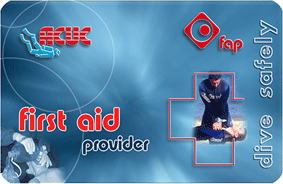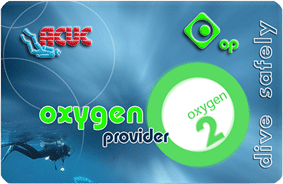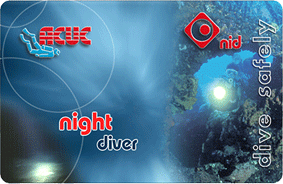Diving specialties
Diving can present a wide variety of scenarios and needs that, requiring specific skills, are covered with specialty courses. Even more, there is other very useful knowledge regarding diving that is not dealt with amply enough in the different courses, so this is also included within the specialties. Here you will find a list of all the corresponding certifications, which we have divided into two major blocks: Recreational diving specialties and technical diving specialties, the latter under the name of TEK Range. The two images below take you directly to each block, where we present the corresponding certifications.
Recreational Specialties
Some teach us to dive in different conditions than usual, others give us more intense knowledge about some particularity of diving and others could be just for safety, some do not even require the student to be a diver. These specialties try to cover many conditions and equipment handling that are not treated in depth in the standard diving courses.
Below we list our specialties. If you are our student and you have contracted the e-learning version of any of the available specialties, by clicking on the image or the title you will access, with the username and password that you have been given, the study materials.
First aid in many diving accidents requires the supply of oxygen. Here we will learn how to operate oxygen equipment with the necessary precautions. This course does not require to be a diver.
You will learn the basics of nitrox diving and all the information you need to dive with the best nitrox mixture, depending on the depth. This course is sufficient to handle the nitrox dives offered by diving centres.
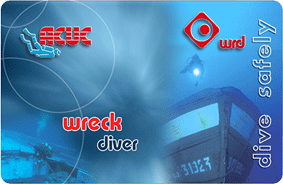
Wreck diver
Here we offer the necessary knowledge for safe wreck diving, including the possibility of going inside, depending on the wreck’s characteristics and maintaining safety.
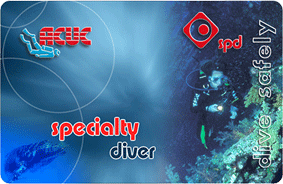
Deep diver
It is an initiation to deep diving, for those people who want to go deeper, staying safe and learning by steps under supervision.

Dive and Emergency Management
This specialty is an add-on offered to the Rescue Diver to achieve the level required for ISO 24801-3 certification, thus becoming equivalent to the Rescue Leader.

Rescue specialist
We will learn the techniques and skills to rescue a diver under water or on the surface, but above all we will learn prevention so that nothing happens.

Dry suit diver
Because we can inject air inside the dry suit, we must learn the techniques of its use, as well as how to do a proper maintenance.

Drift diving
This course teaches the techniques to move safely in drift conditions, as well as to dive by letting ourselves be carried by the currents.
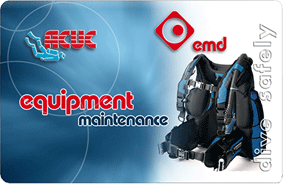
Equipment maintenance
We will see more thoroughly the maintenance of the different equipment and how to perform simple repairs when necessary. This course does not require to be a diver.

Digital Underwater photography
This course offers the necessary knowledge to take advantage of our camera under water, obtaining better results in our pictures.

Surface controller
Here we will learn the part of the work of Divemasters and Instructors in which they deal with the control of divers and groups out of the water. No need to be a diver.

Altitude diving
We will learn how to perform the calculations for any dive at any altitude, also to make the correction calculations in the tables, in the decompression stop depths and in the different ascent speeds according to the altitude.

Biology diver
When we complete this course, we will experience the dives in a different way. Details that previously went unnoticed take prominence when we know how and what to observe.

Archeology diver
We will learn to recognize possible archaeological sites and how to proceed when we see them. We will also learn precautions to have with them and how to collaborate in archaeological works.

Teaching techniques
We need to learn how to teach other people. In order to teach it is not enough to know, but you have to know how to transmit what you know.
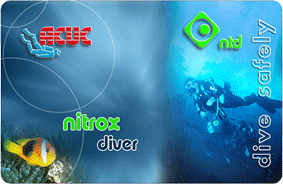
Nitrox blender
This course teaches how to prepare nitrox mixtures with any percentage, methods used and necessary checks, as well as safety requirements. This course does not require to be a diver.

First aid provider
It is a highly recommended course that teaches you to do first aid to a diver who has a problem and handle other situations that could happen outside diving. This course does not require participants to be divers.

Nitrox Diver
You will learn the basics of diving with nitrox and the appropriate mix according to the depth. This course allows mastering scuba diving with nitrox at any dive place.

Underwater navigation
This course teaches us to navigate underwater, to correctly use the compass and its applications, as well as the precautions to be taken.
TEK Range
TEK Range covers the certifications corresponding to what is known as technical diving. It gathers the specialties of diving in conditions of greater difficulty, which require a very specialized training. Some specialties under this area, due to their complexity, are divided into several courses, in order to advance in knowledge while acquiring experience, essential to undertake very complex dives.
Here you will find a list with the technical specialties. If you are our student and you have contracted the e-learning version in any available specialty, by clicking on the image or the title you will access, with the username and password that you have been given, the study materials.

Nitrox TEK Extended Range
We will learn to use several mixtures in a dive and to do the decompression with different mixtures or with oxygen.
You will learn the basics of cave diving, its characteristics and how to do these dives safely, learning navigation techniques, signalling and specific equipment for these environments.
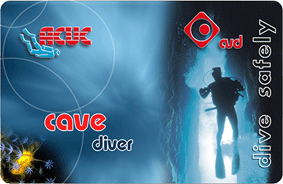
TEK Cave Diving
If you are interested in advanced cave diving, this is your course. You will learn everything you need to go through submerged galleries and even face explorations, interpret topography and carry it out.
We will learn to use a full face mask, with communication systems between divers and between divers and the surface. We will learn the communications procedures.

Trimix Diver Extended Range
It’s one more step in deep trimix diving. In this course we address the hypoxic trimix, with travel gases and decompressive gases.
Here you will learn how to handle Diver Propulsion Vehicles, also known as underwater scooter, precautions, maintenance and care to observe for a safe dive.

Ice diver
For ice diving it is necessary to learn specific precautions and techniques, as well as the protection against the cold, both personal and for our equipment.

Sidemount
This is an extended method to attach our tanks used in technical diving, but perfectly applicable to recreational diving. Here we will learn this technique.

Rebreather
Use of this equipment, generally using Nitrox as a breathing mixture and widely used in different types of technical diving. You must be a nitrox diver.

